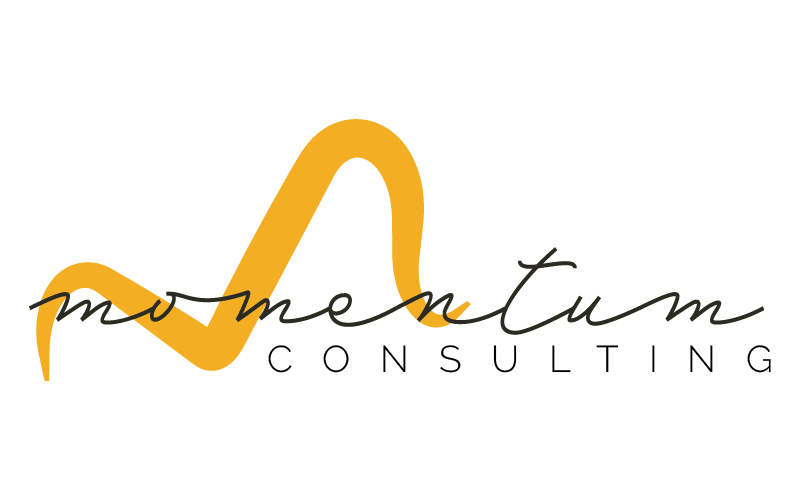Written By Danielle Fauteaux
Starting a successful creative or marketing company can be a rewarding endeavor. However, it doesn’t come without a significant investment of time, labor and passion.
Not everyone who loves marketing wants to start their own agency. Nor should they. There are plenty of satisfying opportunities to work with an established agency, pursue freelancing, or do in-house marketing and advertising for a company in any number of industries.
If you dream of having your own brand, though, and have the tenacity to work hard on building it from the ground up, then it’s a feasible achievement. It comes down to following the right steps to set up your new marketing agency for success.
How to Start a Creative Agency
As with any entrepreneurial endeavor, there’s a meticulous process involved in getting started. You must make dozens of decisions and complete a variety of tasks to ensure you’re starting your marketing agency correctly. Here are a few important steps to take:
1. Decide You Want to Own a Business
This may seem like a given, but it’s worthy of careful deliberation. Before you start filling out paperwork or developing a business plan, assess the costs and benefits of starting a marketing agency and if it aligns with your skillset, lifestyle, and personal goals. If you decide to start a business, it’s important that you want to work for yourself; you enjoy leading others and making hard decisions; you are equipped with the right knowledge and aptitude to deliver high-quality results to clients; and you can learn fast and adapt to the changing professional landscape.
2. Determine Your Niche
The next step is to define your niche. Just because you have the creative skills and means to serve clients in a variety of industries doesn’t mean you should. Choosing a niche will allow you to better establish yourself as a thought leader in a specific space and garner more valuable opportunities. You and your team members can continue to grow your knowledge of that particular trade, giving you an edge over competitors. From there, you’ll want to develop a business plan that outlines the structure of your company and how you plan to grow and bring in revenue in the coming years.
3. Select Your Products and Services
Using your business plan as a guide, determine what products and services you will offer. There are numerous types of marketing, both traditional and digital, and the professional world is ever changing. What type of marketing or creative services are you most interested in providing? Digital marketing and content creation? Designing print materials? Doing social media or search engine optimization (SEO)? You can choose one specific category or combine complementary services and products.
4. Register Your Business and Secure Permits
Once you have a solid vision for your marketing agency, it’s time to legally establish your entity. There are different business structures you can choose from. The most common for a small- to medium-sized marketing agency would be a sole proprietorship; partnership, if you’re working with another person; or a limited liability company (LLC). Whichever structure you select, it will affect your registration requirements, personal liability, and how much you pay in taxes. Additionally, you’ll need to choose a business name and register it.
5. Get State and Federal Tax ID Numbers
Another legal step is applying for an Employment Identification Number (EIN) with the Internal Revenue Service. It’s a fairly easy process to get your nine-digit federal tax ID. In most states, you’ll also need to apply for a state tax ID number. The only caveat would be if your state doesn’t impose income tax, but state tax ID numbers are used for other purposes as well.
6. Establish Funding Source
Starting a new business costs money. It’s important to know how you will cover startup costs and if you intend to raise or borrow the necessary capital. Do you have savings to cover a majority of expenses? Are you taking out a loan or seeking other financing? Even once you’re up and running, it may be a while before you turn a significant profit. A good rule of thumb is to have between 12 and 18 months of your income and operating expenses saved, if possible.
7. Set Up a Bank Account
Next, set up a bank account for your small business. This process will go a lot smoother if you already have your paperwork in hand, including your EIN; business formation documents; business license; and ownership agreements. Having a business bank account is not only more professional, but it also gives you added protection and boosts your purchasing power. Additionally, figure out a billing model to help you navigate cash flow management.
8. Hire an Accountant
Finally, it’s not a bad idea to hire an accountant to oversee your finances. While you may be capable of keeping books, having a professional accountant gives you one less thing to worry about. They can submit tax returns, audit your books, and make sure you stay in compliance with state and federal laws as they change.
Tips for Starting Different Types of Marketing Agencies
Certain steps and actions are essential to achieve success, regardless of your industry. Within the marketing realm, though, there are different types of agencies, and they come with their own specific considerations.
Depending on the particular agency you hope to create, here are a few things to help you get started:
1. How to Start a Digital Marketing/Content Creation Agency
Starting a digital marketing agency or content creation agency means you’ll be helping clients achieve their marketing and advertising goals in the digital world. You’ll need to license the right software and acquire the right tools for content creation, tracking analytics, reporting, task management and product design. Develop a website and use it to showcase your portfolio for prospective clients. If you’re serving a niche audience, another idea is to host a podcast to build effective thought leadership. You can invite guests, which enables you to reach out to leaders at companies that fit your ideal client profile and experts in your niche industry. Also, as you get going, consider applying an account based marketing (ABM) strategy to proactively pursue specific accounts that fit your team well, rather than relying solely on leads that come from inbound marketing efforts.
2. How to Start a Social Media Marketing Agency
If your specialty is social media marketing, make sure your own agency is operating at a high level across numerous platforms. You don’t need to be everywhere, but at least on the main ones, including Facebook, Instagram, LinkedIn, YouTube, and potentially Snapchat and TikTok, depending on your niche industry and clientele. Your own profiles will act as a sort of portfolio. Additionally, acquire and implement social media management processes and tools for your fledgling agency based on your specific marketing areas, whether that be organic social media, paid content, SEO, or PPC. Another tip is to establish strategic partnerships with other digital marketing and creative agencies who offer services that complement your own. Together, you can offer clients in your niche industry a wider array of services and products. To get to know digital marketers, content creators, web developers, and other marketing professionals, participate in niche groups and associations, engage in conversations, and stay involved.
3. How to Start a Creative Agency
For a creative agency, you will be developing strategies and marketing solutions for your clients across various technologies and platforms. That could include print and digital design; consulting services; generating ideas for advertising campaigns and helping to execute them; and much more. In general, creative agencies tend to be more full-service entities. To that end, you may need to bring on team members with specialty skills to help in different areas. As the owner, it’s not uncommon to spend less time on actually doing client work—which is handled by employees—and more time on building and implementing systems; coming up with strategies for finding new clients; and training your team to optimize service delivery. For example, think about implementing an inbound marketing system; hosting a client event; and allocating funds to make office visits and have in-person interactions to build new client relationships and then sustain them.
4. How to Start a Web App Development Company
Web app development is a specialty, in and of itself, but when starting your agency, you’ll need to take several of the same steps as other marketing and creative companies. That includes building a website, starting a portfolio, and getting licenses for the tools and products you need to complete projects. Additionally, develop a template for service contracts, which reduce the risk of legal disputes, clarify intellectual property ownership, and mediate client expectations. You should have clients sign these service agreements at the start of any new project. Next, think about how you will sell and promote your apps. Often, agencies offer a simple version for free and then an enhanced or premium version at a cost. Plan to attend trade shows and other networking events to meet prospective clients.
5. How to Start a Market Research Firm
With a market research agency, you can assist clients by giving them the data they need to build effective marketing solutions and campaigns for their company. Invest in market research software and building a company website. If you’ve selected a niche industry, consider compiling general information and benchmarks for that industry so you’re prepared to work with clients; give them insights on market trends and the competition; and help them determine which custom research solutions would be best. This is one way to solidify your thought leadership in your niche. You also must market your firm by cultivating an online presence, using LinkedIn strategies, and networking through trade organizations.
Starting a Successful Marketing Agency
Trying to establish a new marketing agency is not for the faint of heart, but it can pay off in the long run with the right mixture of professional skills, personal qualities and perseverance. If you’re ready to undertake this journey and overcome the challenges that come with it, Momentum Marketing is here to help. I can offer guidance, feedback and insight to keep you moving forward in a strategic way so you can build a marketing brand that’s made to last.
Building a successful marketing agency takes grit, a focus on your value, and sometimes a *loving* kick in the pants.
Needing an ally as you achieve your long-term goals?
I’d be happy to help.

